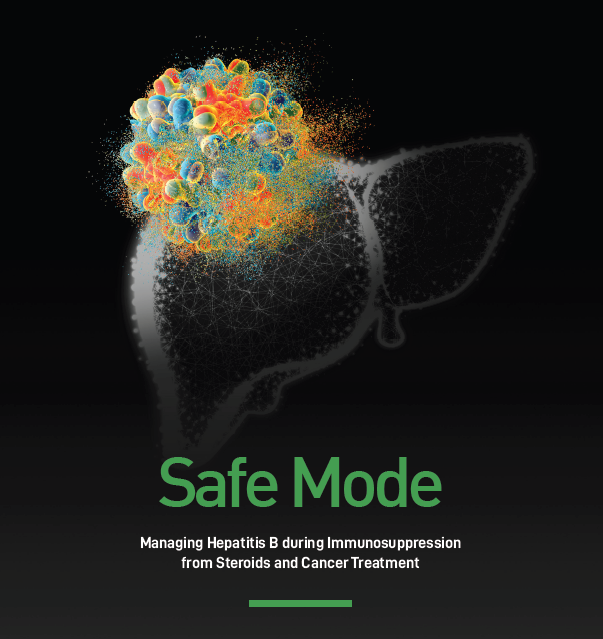
The immune system is good at maintaining a healthy body when it is functioning normally. It keeps latent infections at bay and prevents health complications. Latent infection is an infectious disease that is present in the background and does not cause harm when the immune system is able to effectively prevent the infection from causing damage to the body. In Asia, hepatitis B is a common infection that may persist after an acute phase of illness and becomes a latent infection.
HEPATITIS B
Hepatitis B virus (HBV) infection is a global health problem. It has been estimated that two billion people worldwide have previous or present infection with HBV. Infection with HBV can be acute or chronic. Data from the World Health Organization (WHO) in 2015 suggested that there were around 257 million HBV carriers in the world and roughly 887,000 who died that year from HBV-related liver disease. Southeast Asia is one of the top 3 regions in the world for chronic HBV infection.
HBV mainly targets the liver and enters the liver during infection. During HBV infection, double stranded HBV deoxyribonucleic acids (DNAs) of the virus enter the nuclei of the liver cells. In the nucleus of an infected liver cell, the HBV virus stabilizes itself through a process that allows it to persist long-term in the nucleus in a form known as covalently closed circular DNA (cccDNA). Even when a patient is clinically better, a very small amount of cccDNA persists deep in the cell nuclei.
TRANSMISSION
HBV is mainly transmitted by the bodily fluids and blood of an infected person to a non-immune person. Thus, HBV can be transmitted by contaminated blood during blood transfusion or through the sharing of contaminated intravenous (IV) needles (e.g. among IV drug abusers, use of unsterilized needles, etc.). The risk of contaminated IV needles may be especially pertinent as tattoos have gained popularity around the world, while many people in Asia also use acupuncture to treat various ailments. Thus, before inking a tattoo or undergoing acupuncture, it is important to ensure that the needles being used are properly cleaned/sterilized or that new needles are being used for each client. Infected parents can pass on their HBV infection to their children. Sexual transmission via unprotected sex is another possible route of transmission.
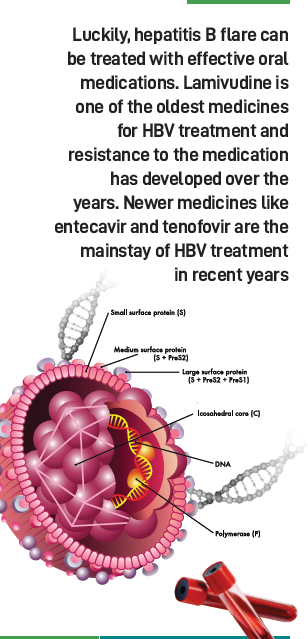
SYMPTOMS
HBV infection can present acutely, as a flare of chronic HBV infection or as an incidental chronic HBV infection finding. The range of symptoms can range from mild to severe. Severe symptoms may include fulminant hepatitis and liver failure. Asymptomatic cases can also occur and these tend to show abnormal liver function blood tests. The frequency of progression from acute to chronic HBV infection depends on the age of the person infected acutely. About 90% of infants becomes HBV carriers but less than 5% of acutely infected adults become HBV carriers. Long-term HBV infection damages the liver and may cause cirrhosis. It also predisposes the liver to developing liver cancer.
DIAGNOSIS
There are multiple HBV blood tests to stage a HBV infection. Serum hepatitis B surface antigen (HBsAg) positivity means the person is a chronic HBV carrier. Blood hepatitis B surface antibody (HBsAb) can be from previous vaccination or previous infection. The hepatitis B total core antibody (HBcAb) differentiates the two as a positive result means that the person has previous HBV infection. The most crucial blood test is the test for HBV DNA level. In a HBV flare or reactivation, the HBV DNA level will increase substantially and may cause substantial liver damage. Table 1 summarizes what different combinations of the various blood tests mean.
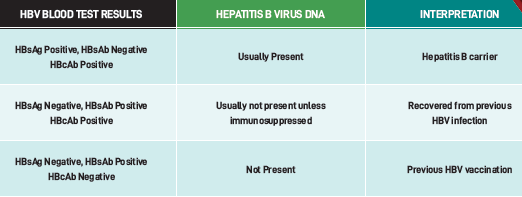
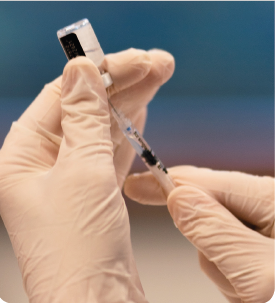
STEROIDS AND CANCER TREATMENT
Steroids and cancer treatment are two groups of therapies that are widely used in disease treatment to reduce disease complications and improve long-term survival. These therapies are well-known to suppress the immune system and may result in complications from latent infections, such as hepatitis B. Thus, doctors often routinely screen their patients for latent infections before starting them on steroids or cancer treatment.
- STEROIDS
Steroids are economically priced, effective medicines that are widely used for a variety of illnesses. When the COVID-19 coronavirus caught the world by surprise, there were initially no proven medicines to treat COVID-19 patients. Within a short span of time, hundreds of thousands of COVID-19 patients were placed on oxygen supplementation or on intensive care breathing machines (ventilators). A number of patients passed away due to COVID-19 complications.
Steroids was one of the earliest medicines that was found to be able to help COVID-19 patients. Doctors usually prescribe the use of steroids over 10 days. A landmark study has shown that the steroid dexamethasone helped to lower the death rate of patients who required oxygen supplementation or who were placed on ventilators, compared to patients who were not treated with the steroid. There were also other improvements observed in the steroid-treated group, including a shorter duration of hospital stay.
Autoimmune diseases are diseases where the body’s immune system attacks parts of the body instead of protecting the body. This usually results in inflammation. One of the main medicines used to treat such diseases is steroids, which calm the inflammation. Steroids may be used for a prolonged period of time. This may increase the risk of HBV flare or reactivation. Autoimmune diseases treated with steroids include systemic lupus erythematosus (SLE), inflammatory bowel disease and rheumatoid arthritis. Patients with lung conditions, such as asthma and chronic obstructive pulmonary disease (COPD), are also regularly treated with steroids.
Steroids suppress the immune system to improve these diseases. Thus, patients who use such medications are at risk of HBV reactivation or flare. The risks depend on the length of treatment and the dose of the steroid used.
- CANCER TREATMENT
The diagnosis of cancer can generate and stir strong emotions in patients and their families. Any delay in starting treatment or a break in treatment due to complications can cause stress and despondency.
The treatment of cancers has improved tremendously over the years. Chemotherapy can be the mainstay of cancer treatment: used before or after surgery to achieve the best long-term outcome and hopefully, a cure. Chemotherapy suppresses the immune system or alters the way the immune system functions. Some chemotherapy regimens are combined with steroids, thus suppressing the immune system even further, and increasing the risk of HBV reactivation or flare.
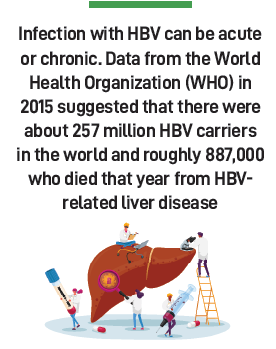
Different chemotherapy regimens have different risks of HBV reactivation/flare. For example, the use of monoclonal antibodies (e.g. rituximab) against CD20 proteins on white blood cells can carry a high risk of reactivation. Data on newer cancer treatments like immune checkpoint inhibitors (ICPIs) is being compiled regularly as their use increases. We are finding out more about these treatments as experience in their use grows. ICPIs are used to treat multiple types of cancers including breast, colon, lung and liver cancers. When a patient is found to have previous HBV infection, oncologists (chemotherapy specialists) will work closely with specialists in gastroenterology and liver (hepatology) to ensure that chemotherapy can be started expeditiously and continued without interruption.
Thus, before you start steroid treatment or chemotherapy, you may want to ask your doctor about screening for latent infections in order to prevent delay to the start of your treatment or suffer interruption in your treatment.
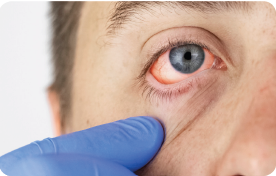
MANAGEMENT
Patients with previous HBV infection can be broadly divided into 2 groups, depending on their blood test results (please refer to Table 1). The first group consists of patients who are HBsAg positive and HBcAb positive. This group usually has detectable quantities of HBV DNA in their blood. This group is more likely to have hepatitis B reactivation/flare when immunosuppressed.
The second group is HBsAg negative and HBcAb positive. HBV DNA is usually undetectable in this group of patients. This group is less likely to have hepatitis B reactivation/flare when immunosuppressed.
Luckily, hepatitis B flare can be treated with effective oral medications. Lamivudine is one of the oldest medicines for HBV treatment and resistance to the medication has developed over the years. Newer medicines like entecavir and tenofovir are the mainstay of HBV treatment in recent years. Tenofovir comes in two preparations: tenofovir alafenamide (TAF) and tenofovir disoproxil fumarate (TDF). TAF is the newer of the two.
For HBV treatment-naïve patients, entecavir and tenofovir tend to be favoured over lamivudine as long-term treatment with lamivudine can result in the development of drug-resistant HBV. Tenofovir can also be taken by pregnant women for HBV treatment as it has a good safety profile. This includes the new TAF, where new evidence is supporting its effectiveness and safety profile in pregnant women.
Different forms of immunosuppression may require different regimens for HBV flare treatment or reactivation prevention. Depending on the risk stratification, HBV may have to be treated before immunosuppression can be started. In certain cases, HBV treatment may have to be started concomitantly with the immunosuppression. In low-risk scenarios, there may be regular monitoring instead of starting anti-HBV medicine.
It is important to note that HBV treatment may last up to a period of several months. This tends to occur when chemotherapy treatment has been used. Despite stopping certain chemotherapies, HBV reactivation and flare may still occur months later. HBV treatment does not completely eliminate the HBV from the body. Treatment only inhibits or slows down HBV reproduction. Even when blood test results show that HBV DNA level is undetectable, there is still a small amount of HBV cccDNA present. Hence, there is still a possibility of having HBV reactivation or flare after stopping certain chemotherapies.
PATIENT-CENTRED CARE
In summary, HBV treatment is effective and evidence-based for patients with previous HBV infection. It is important that a gastroenterologist and liver specialist work with the doctor starting immunosuppression to tailor a course of treatment that is suitable for the patient. This is the ethos of patient-centred care.
Dr Christopher Kong San Choon
Senior Consultant,
Gastroenterology & Hepatology (Liver)
StarMed Specialist Centre
@starmedspecialistcentre

Dr Christopher Kong San Choon is a specialist in the field of Gastroenterology. He was inducted as a Member of the Royal College of Physicians of Ireland in 1999. Dr Kong completed his training in General Internal Medicine (GIM) and Gastroenterology in the UK, and was accredited into the United Kingdom Speciality register in 2007 for both GIM and Gastroenterology. Dr Kong has been involved in multiple clinical trials and research studies, with multiple publications in scientific and clinical journals. He performed the first motorised spiral enteroscopy in Southeast Asia in 2019, a new technique which makes it possible for small intestines to be thoroughly examined in just 30 minutes, in contrast to 6 hours by balloon-assisted endoscopes. He also helped set up the Department of Gastroenterology and Hepatology in Sengkang General Hospital as Clinical Lead of the department. Dr Kong previously served as Senior Consultant in Singapore General Hospital and was Director of the Inflammatory Bowel Disease Centre.
Call: +65 6322-6333
Whatsapp: +65 9655-2101
email: info@starmedspecialist.com
Website: starmedspecialist.com












